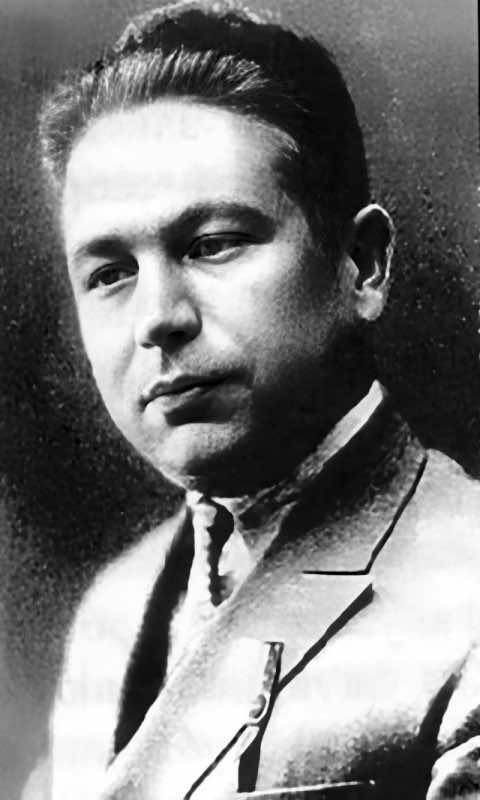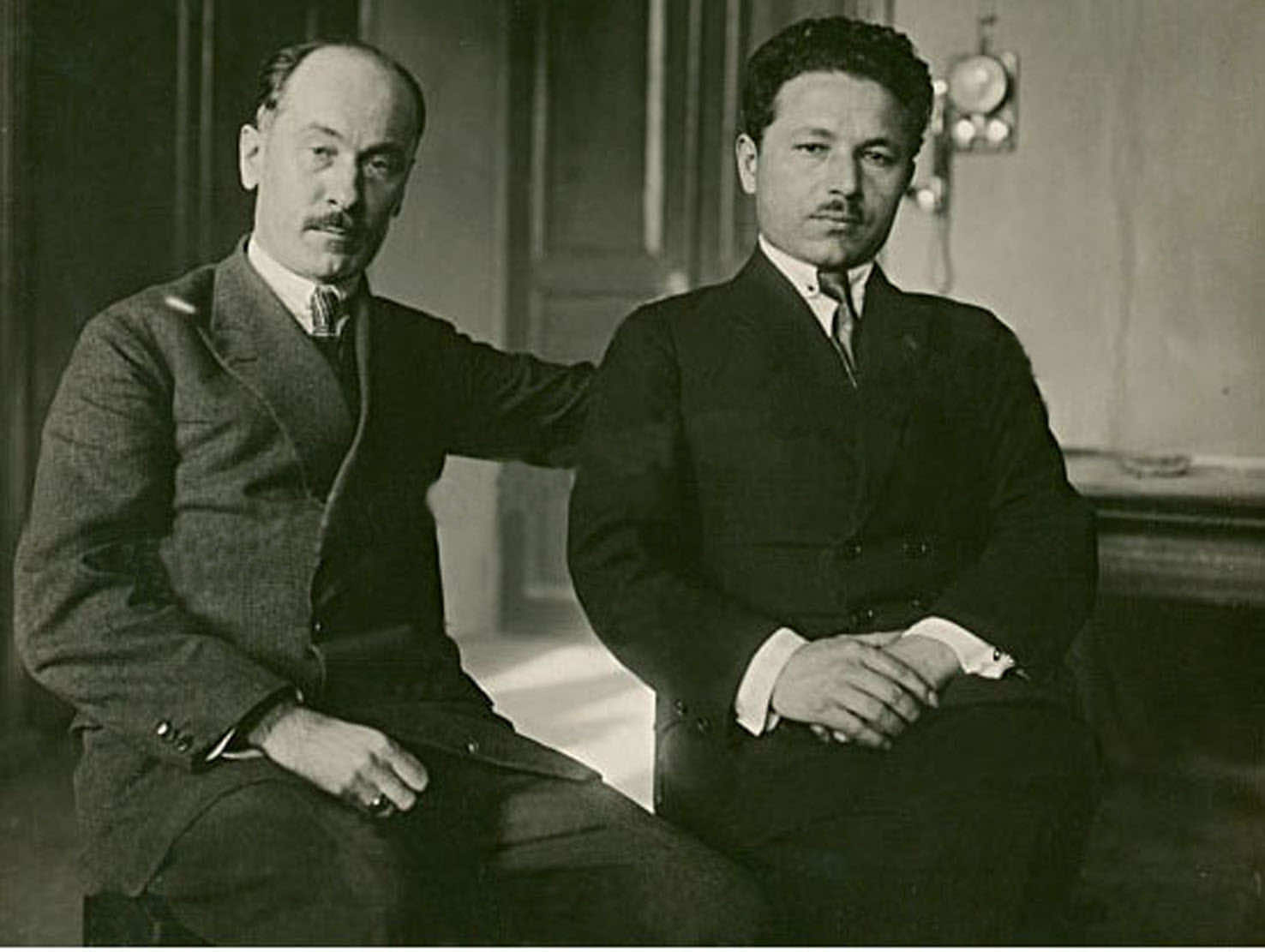Prominent linguist, literary critic, professor Bekir Chobanzade
Chobanzade Bekir Vahab oglu - literary critic, textual scholar, member of Writers' Union of Azerbaijan since 1934, Doctor of Sciences in Philology, professor. 
Bekir Chobanzade was born on May 15, 1893, in the city of Garasubasar, Simferopol region, Crimea. He received his primary education there. At the age of 14, he attracted attention with his extraordinary intelligence. The Society of Religious Benefactors sent him to Turkey to continue his education at Galatasaray high school - "Sultaniyya" (1908-1918). He wrote his first poems, also the poem "Where is Mother?" in his student days. B. Chobanzade studied Arabic and Persian languages to perfection in the three-year higher course at Istanbul University.
He was one of the founders and leaders of the "Crimean-Tatar Student Society" consisting of young people living with the ideas of "Independent Tatar Crimea" in Turkey. Then he studied Turkish, Arabic and Hungarian philology at the Faculty of History and Philology of Budapest University. He was the editor of "Sharg" newspaper published in Turkish in Budapest (1919). His poems were published in "Krım" (Crimea), " Göy kitab" (Blue book) (Istanbul) and "Şərq" (East) newspaper (1918-1919). During this period, he published his socio-political and scientific articles in periodicals of Turkey, Crimea, Central Asia, and Russia under different signatures. Later, articles were published in "Turkish Encyclopedia" under the signatures of "Choban oglu", "Bekir Baybek", "Bekir Javbek", "Bekir Yaybek", "Choban oglu Bekir Sidgi". In 1920, he was awarded the title of Candidate of Philological Sciences, and in 1922 the title of Professor.
 After returning to his homeland, in 1920-1922, Bekir Chobanzade served as the leader of the Crimean revolutionary committee, the head of the Department of Tatar Language and Literature in the Crimean Commissariat of Education, and simultaneously he worked in higher education and scientific research institutes. He delivered lectures on the Crimean-Tatar language and literature as a professor of the Faculty of Oriental Studies at the University of Crimea. At the same time, he continued his social activities as a member of the Central Executive Committee of Crimea. He was the rector of the University of Crimea.
After returning to his homeland, in 1920-1922, Bekir Chobanzade served as the leader of the Crimean revolutionary committee, the head of the Department of Tatar Language and Literature in the Crimean Commissariat of Education, and simultaneously he worked in higher education and scientific research institutes. He delivered lectures on the Crimean-Tatar language and literature as a professor of the Faculty of Oriental Studies at the University of Crimea. At the same time, he continued his social activities as a member of the Central Executive Committee of Crimea. He was the rector of the University of Crimea.
In 1928, at the invitation of S. Aghamalıoğlu, B. Chobanzade was appointed the chairman of the committee on the new alphabet in Azerbaijan, the head of the All-Union Central Committee of the New Turkish alphabet. He worked on the transition to the Latin alphabet in Central Asia, Tatarstan, Bashkortostan and Crimea, and at the same time delivered lectures on various problems of Turkology in Tauris, Baku, Tashkent, Fergana and Bukhara universities (1920-1936). During these years, he prepared a comparative text of the Divan authored by Shah Ismayil Khatai based on British and Ardabil copies. Actively worked in the organization of the 1st All-Union Turkological Congress (1926). He actively fought for the transition of the Turkic peoples to a new alphabet, gave lectures at instructor courses in Moscow (1928).
In 1924-1929, B. Chobanzade headed the Terminology Committee at the Azerbaijan General Scientific Administration, and at the same time served as a department head and dean at the Faculty of Oriental Studies of the Azerbaijan State University. In 1928, he was elected a full member of the Institute of the Peoples of the East in Moscow.
In 1929 he served as the head of the postgraduate department of the Azerbaijan State Scientific Research Institute. In 1932 he was elected a full member of the Azerbaijan department of the Transcaucasian branch of the former USSR Academy of Sciences, and in 1935 of the Azerbaijan branch of the USSR Academy of Sciences.
Bekir Chobanzade was a member of the Paris Linguistic Society. A number of European writers explored his research and scientific activities. His theoretical and philological legacy was rich and multifaceted. B. Chobanzade made an outstanding contribution to the study of the belletristic literature of the Turkic peoples living in the Soviet East, the theoretical problems of modern literature, and the formation of language history. Along with a number of monographic works, he co-authored the books "Methodology of Turkish Language" (1932), "Fundamentals of Scientific Grammar" (1932). His scientific articles and literary works were regularly published in periodicals. In 1971, the first collection of poems in the Uzbek language was published in mass circulation press.
On January 28, 1937, Bekir Chobanzade was arrested in the "Gornyak" (Miner) sanatorium of Kislovodsk, taken to the Pyatigorsk prison, and from there to the detention center of the People's Commissariat of Internal Affairs of the Azerbaijan SSR.
On October 12, 1937, the court session of the Military Collegium of the USSR Supreme Court was held with the participation of Matulevich, Zaryanov and Zhigur, and the session, which started at 11.20, ended at 11.40.
On October 12, 1937, B. Chobanzade was sentenced to the most severe punishment - the death penalty. The execution was carried out a day later, on October 13, 1937.
The burial place is unknown.
Recommended literature:
- Allahmanlı, Mahmud Qara oğlu. Kırımtatar ədəbiyyatı : problemlər, mülahizələr / M. Q. Allahmanlı ; elmi red. T. C. Novruzov. - Bakı : ADPU nəşriyyatı, 2007. - 146 s.
- Qasımov, Cəlal Əbil oğlu. Bəkir Çobanzadə : monoqrafiya / C. Ə. Qasımov ; baş red. F. Salayev ; Azərbaycan Respublikası Dövlət Təhlükəsizliyi Xidmətinin Heydər Əliyev adına Akademiyası. - Bakı : DTX-nin Heydər Əliyev adına Akademiyasının nəşriyyatı, 2018. - 328 s.
- Allahmanlı, Mahmud Qara oğlu. Bəkir Çobanzadə : həyatı, mühiti və yaradıcılığı / M. Q. Allahmanlı ; elmi red. Q. Umudlu. - Bakı : ADMİU, 2022. - 448 s.